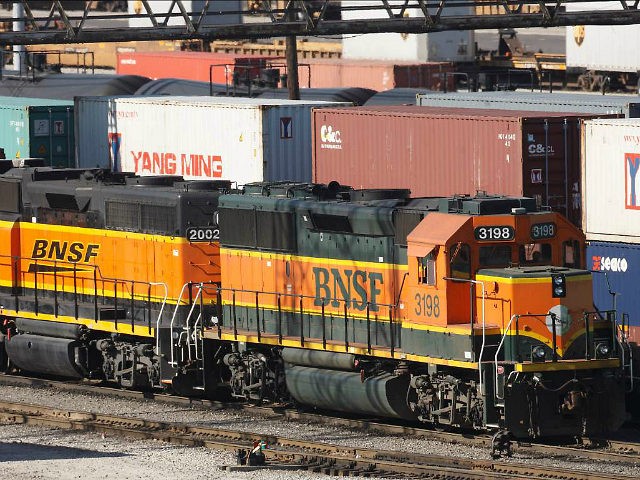President Biden’s inflation crisis was a driving force behind the now tentatively avoided railway strike that threatened to cut deep into the veins of the U.S. economy.
Unfortunately, the tentative deal is likely to add to inflation worries of a wage-price spiral fueling inflation.
The Association of American Railroads, which represents freight railroads, said the new contracts negotiated with three unions representing 60,000 workers will include a 24 percent wage increase during the five-year period from 2020 through 2024. This retroactive pay hike will include a one-time payout that will average $11,000 per worker upon ratification.
It’s not clear if the changes to attendance policies demanded by the unions are part of the tentative deal.
The resolution of the labor dispute highlights the central role inflation played in bringing us to the brink of an economically crippling strike. Railroad workers understandably wanted a big pay hike because the U.S. economy is experiencing the worst inflation in four decades. The cost of living has skyrocketed while pay for most workers, including railway workers, has not been keeping up. Real wages have been falling throughout this inflation crisis.
The railroad unions will not be the last to demand big wage increases. Inflation creates a need for higher incomes just to keep up with rising costs and the success of the railway workers will encourage others.
Higher wages, however, create more demand for goods and services. In an economy already experiencing high inflation amid stagnant growth, this tends to increase inflationary pressures. The rising prices that result create even more need for higher incomes. Economists refer to this as a wage-price spiral.
Demands by workers and their unions for higher wages to compensate for higher prices are reasonable and fair. With unemployment extremely low and job openings extremely high, workers are experiencing a kind of market power that has been rare for decades.
The blame for the wage-price spiral should be put squarely on policymakers in the Biden administration and the Federal Reserve. We probably would have experienced a brief, actually transitory, and much smaller inflationary bout as the economy reopened. But it was the Biden fiscal expansion, aided by the Fed’s accommodative monetary policy, that provided the fuel that let inflation get so high and become such a threat to American prosperity.
Joe Biden’s policies and Fed chair Jerome Powell’s shortsightedness caused the inflation that is wrecking the standard of living of American workers. Thank God for the unions that are helping workers defend the quality of life they have worked so hard to build for their families.

COMMENTS
Please let us know if you're having issues with commenting.